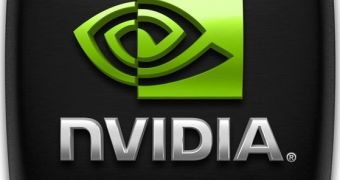Nvidia is reportedly having serious issues with the market share in its chipset business. The problems that led to this situation are multiple, but all the signs point to AMD, the company's Arch-rival on the graphics sector.
Nvidia's sales on the chipset market are seriously affected by the fact that AMD's processors did not manage to sell as expected, which led to a drop in demand for Nvidia's chipsets built for the AMD platforms. The few Phenom models that recently started shipping did not change the situation at all.
More than that, AMD is currently manufacturing its own chipsets for the Phenom line, and it's doing this at much lower costs than Nvidia can afford. In response, motherboard manufacturers are rushing to purchase chipsets from AMD, rather than from Nvidia.
It's true, replacing Nvidia's chipsets with AMD's offerings will blow any chance of running SLI on the affected motherboard, but this does not seem to be an issue for the manufacturers. Nvidia seems to artificially inflate pricing for its chipsets just for the inclusion of the SLI technology.
SLI seems to be Nvidia's only advantage in the chipset battle with titan Intel and the chipset division of AMD. The latter has recently started punching extremely hard on the integrated graphics chipset market with the advent of its 780G chipset, the undisputed king when it comes to integrated cores.
As AMD officials claimed during the CeBIT expo, hybrid graphics was the main purpose of the ATI acquisition, a process that buried AMD under a thick layer of debt checks. However, the buyout seems now to pay off and push Nvidia back to its corner.
We have reported that Nvidia is closely working with CPU manufacturer VIA, in order to produce chipsets for the C7 and Isaiah processors. However, while VIA is struggling to achieve low-power, low-heat processors, Nvidia's chipsets are famous as being true powerhogs that dissipate huge amounts of residual heat. A combination between VIA's CPUs and Nvidia's chipsets would be completely useless for now.

 14 DAY TRIAL //
14 DAY TRIAL //